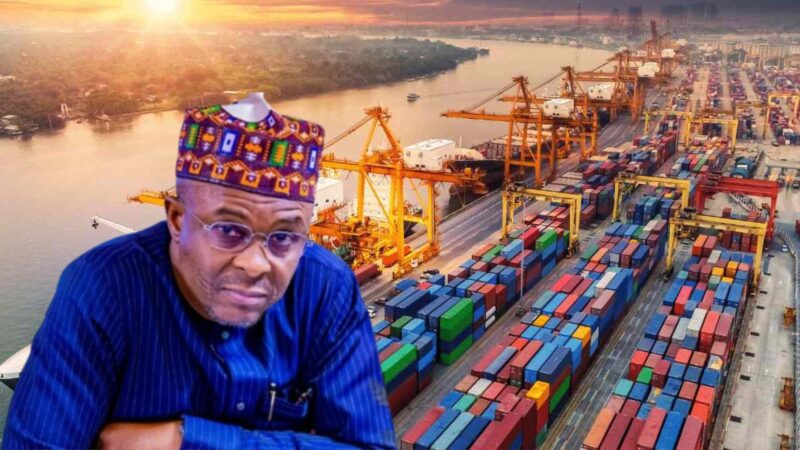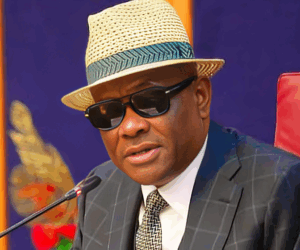
The Port Reforms Advocacy Network (PRAN) has applauded the Managing Director of the Nigerian Ports Authority (NPA), Dr. Abubakar Dantsoho, for what it described as “transformative leadership” that is repositioning Nigeria’s seaports as engines of trade, investment, and global competitiveness.
In a statement on Friday signed by its President, Prince Chijioke Adimora, the group commended Dantsoho for spearheading far-reaching modernisation initiatives — including infrastructure upgrades, operational digitalisation, and sustainability projects — which it described as “game-changing” for trade facilitation and non-oil export growth.
Adimora noted that figures presented by Dantsoho at the ongoing United Nations General Assembly highlighted the tangible impact of the reforms, with improved seaport efficiency contributing to a 19.6% growth in non-oil exports in the first half of 2025.
“This achievement underscores the importance of competent leadership in strategic institutions like the Nigerian Ports Authority,” Adimora said. “In less than two years, Dr. Dantsoho has not only overhauled operational procedures but also restored investor confidence in our seaports.”
ALSO READ: NUPRC’s bold regulatory reforms turn Nigeria into an investor magnet in the oil, gas sector
He described the NPA’s ongoing investments in smart digitalisation as a decisive step into the future — with paperless transactions, e-tag verification, and electronic call-up systems replacing cumbersome manual processes that once slowed trade.
Adimora cited the introduction of electronic barrier systems at Lagos Port Complex terminals as a major step forward in traffic and access management, while expanded electronic platforms are already reducing cargo dwell time and improving overall efficiency.
“Under Dantsoho’s leadership, we are witnessing a real transition to leaner, greener, and more efficient port operations,” he said. “The combination of reduced emissions, improved intermodal connectivity, and lower logistics costs is helping Nigeria build a sustainable maritime sector capable of competing globally.”
The group also welcomed the NPA’s plan to launch a Port Community System by Q1 2026, calling it a critical milestone that will deepen stakeholder collaboration, integrate transactions, and unlock new trade opportunities.
PRAN further praised the Authority’s commitment to environmental responsibility, including shore-to-ship emission reduction initiatives at Lekki Port, which align Nigeria with international best practices in maritime operations.
It also lauded the recent commissioning of state-of-the-art tugboats and marine crafts to support operations at the Lekki Deep Seaport, Dangote Refinery, and Dangote Fertiliser Plant, describing the move as proof of NPA’s readiness to service mega-industrial facilities crucial to Nigeria’s economic transformation.
“Dr. Dantsoho’s focus on long-term viability, efficiency, and competitiveness ensures that our ports remain the pride of West Africa,” Adimora added. “With enhanced capacity to handle super post-Panamax vessels, Nigeria is firmly positioning itself as a regional and international trade hub.”
He urged stakeholders across the maritime and trade value chains to support the ongoing reforms, stressing that the current momentum in non-oil exports must be consolidated to reduce Nigeria’s dependence on crude oil revenue.
ALSO READ: EFCC under pressure as CSO demands report on missing $4bn refinery funds
“Dr. Abubakar Dantsoho has demonstrated the right mix of vision, competence, and dedication. The results are clear: improved trade facilitation, renewed investor confidence, and real growth in non-oil exports,” Adimora concluded. “For us at PRAN, this is the pathway to genuine economic diversification.”
With his ambitious modernisation agenda and emphasis on sustainability, Dantsoho’s leadership is increasingly seen as central to Nigeria’s renewed drive for global competitiveness and economic resilience.








